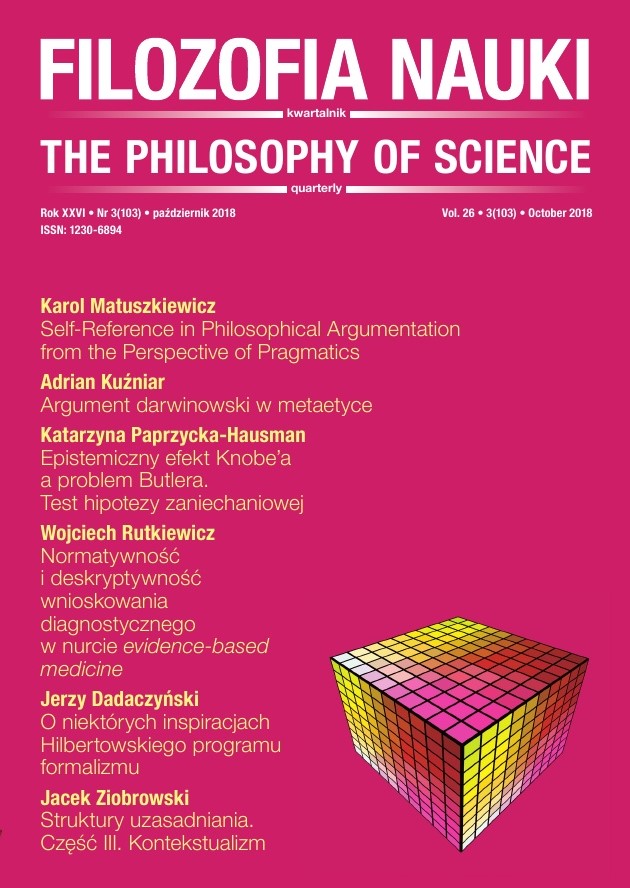Normatywność i deskryptywność wnioskowania diagnostycznego w nurcie evidence-based medicine
Normative and Descriptive Aspects of Clinical Reasoning within Evidence-Based Medicine
Author(s): Wojciech RutkiewiczSubject(s): Philosophy
Published by: Uniwersytet Warszawski - Wydział Filozofii i Socjologii, Instytut Filozofii
Keywords: dual-track theory; heuristics; clinical decision making; theory of decision; Bayes Theorem
Summary/Abstract: Evidence-based medicine (EBM) provides basic rules for diagnostic procedures. A physician is required critically to appraise clinical evidence and to internalize the quantitative approach to data processing in her practice. There is a common agreement that knowledge of statistical methods is among the core skills of a competent physician. This includes Bayes Theorem. The key role of statistics in medicine gives rise to a normative way of clinical reasoning. However, many researches point out that medicine practitioners do not follow this normative way. Instead, they use common decision strategies mostly based on heuristics. This situation opens a gap between normative and descriptive aspects of clinical reasoning. Consequently, many experts are prone to draw unfavorable conclusions about rationality of clinical decisions. This paper characterizes normative and descriptive aspects of clinical reasoning regarding the concepts of Bayes Theorem and heuristics. It differentiates between two interpretations of heuristics: one presented by Amos Tversky and Daniel Kahneman and another by Gerd Gigerenzer. It is argued that clinical decisions based on heuristics are not necessarily flawed and irrational.
Journal: Filozofia Nauki
- Issue Year: 26/2018
- Issue No: 3 (103)
- Page Range: 79-98
- Page Count: 20
- Language: Polish

